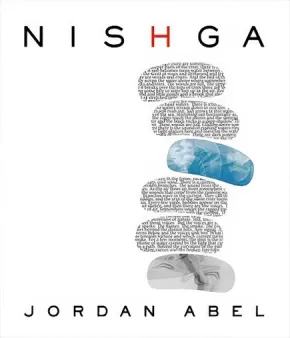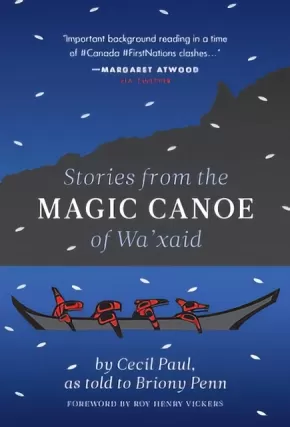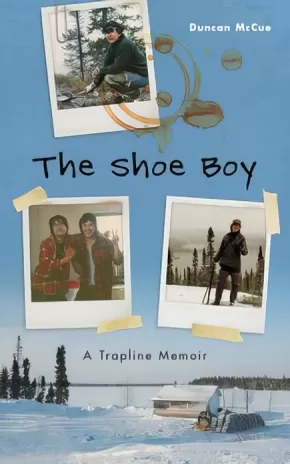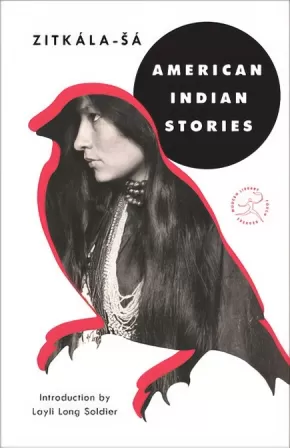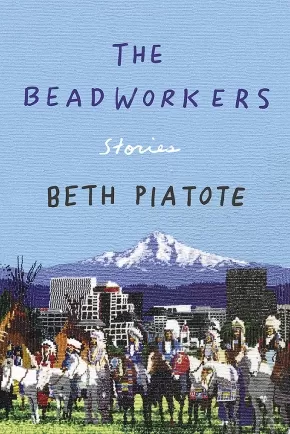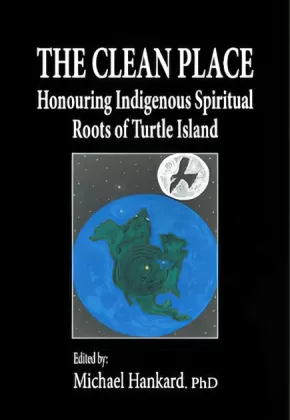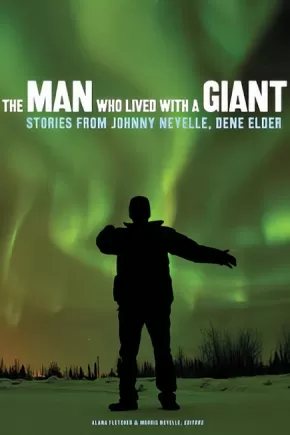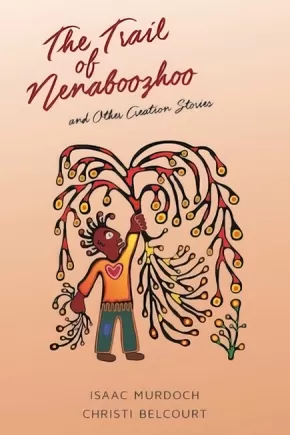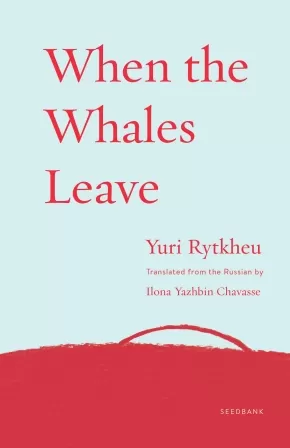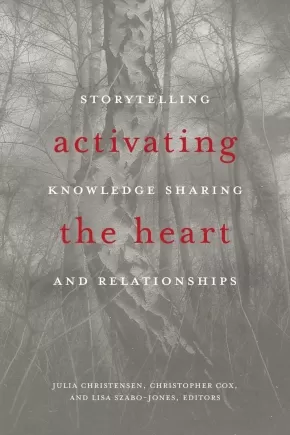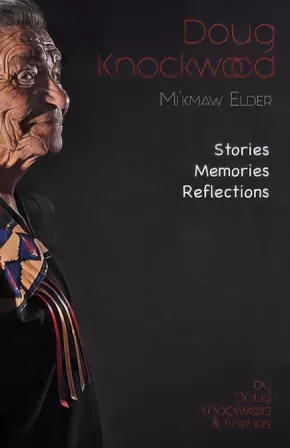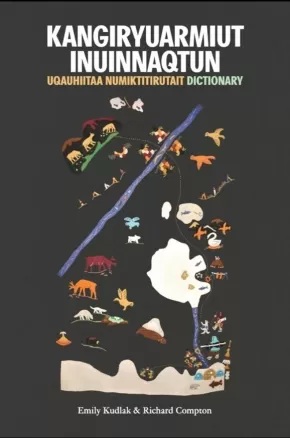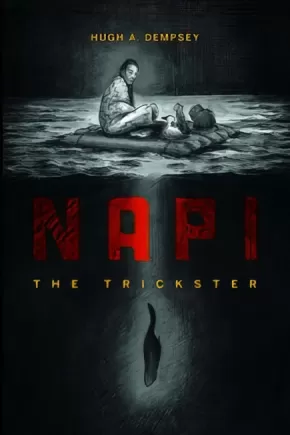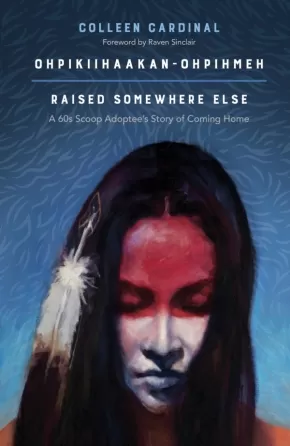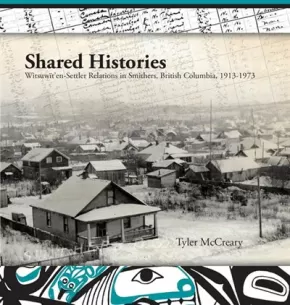
Indigenous Stories
61
-
75
of
100 Results;
Sort By
Go To
of 7
Nishga (HC) (1 in Stock)
$32.95
Format:
Hardcover
Text Content Territories:
Indigenous Canadian; First Nations; Nisga'a;
ISBN / Barcode: 9780771007903
Synopsis:
Synopsis:
From Griffin Poetry Prize winner Jordan Abel comes a groundbreaking and emotionally devastating autobiographical meditation on the complicated legacies that Canada's reservation school system has cast on his grandparents', his parents' and his own generation.
NISHGA is a deeply personal and autobiographical book that attempts to address the complications of contemporary Indigenous existence. As a Nisga'a writer, Jordan Abel often finds himself in a position where he is asked to explain his relationship to Nisga'a language, Nisga'a community, and Nisga'a cultural knowledge. However, as an intergenerational survivor of residential school--both of his grandparents attended the same residential school in Chilliwack, British Columbia--his relationship to his own Indigenous identity is complicated to say the least.
NISHGA explores those complications and is invested in understanding how the colonial violence originating at the Coqualeetza Indian Residential School impacted his grandparents' generation, then his father's generation, and ultimately his own. The project is rooted in a desire to illuminate the realities of intergenerational survivors of residential school, but sheds light on Indigenous experiences that may not seem to be immediately (or inherently) Indigenous.
Drawing on autobiography, a series of interconnected documents (including pieces of memoir, transcriptions of talks, and photography), NISHGA is a book about confronting difficult truths and it is about how both Indigenous and non-Indigenous peoples engage with a history of colonial violence that is quite often rendered invisible.
Reviews
“With NISHGA, Jordan Abel has reinvented the memoir, incorporating personal anecdotes, archival footage, legal documentation, photos and concrete poetry to create an unforgettable portrait of an Indigenous artist trying to find his place in a world that insists Indigeneity can only ever be the things that he is not. Abel deftly shows us the devastating impact this gate-keeping has had on those who, through no decisions of their own, have been ripped from our communities and forced to claw their way back home, or to a semblance of home, often unassisted. This is a brave, vulnerable, brilliant work that will change the face of nonfiction, as well as the conversations around what constitutes Indigenous identity. It's a work I will return to again and again.” —Alicia Elliott, author of A Mind Spread Out on the Ground
“In NISHGA, Jordan Abel puts to use the documentary impulse that has already established him as an artist of inimitable methodological flair. By way of a mixture of testimonial vignettes, recordings of academic talks, found text/art, and visual art/concrete poetry, Abel sculpts a narrative of dislocation and self-examination that pressurizes received notions of “Canada” and “history” and “art” and “literature” and “belonging” and “forgiveness.” Yes, it is a book of that magnitude, of that enormity and power. By its Afterword, NISHGA adds up to a work of personal and national reckoning that is by turns heartbreaking and scathing.” —Billy-Ray Belcourt, author of NDN Coping Mechanisms and A History of My Brief Body
"This is a heart-shattering read, and will also be a blanket for others looking for home. NISHGA is a work of absolute courage and vulnerability. I am in complete awe of the sorrow here and the bravery. Mahsi cho, Jordan.” —Richard Van Camp, author of Moccasin Square Gardens
“Jordan Abel digs deeply into the questions we should all be asking. Questions that need no explanation but ones that require us to crawl back into our bones, back into the marrow of our understanding. NISHGA is a ceremony where we need to be silent. Where we need to listen.” —Gregory Scofield, author of Witness, I Am
Additional Information
288 pages | 7.25" x 8.62"
Stories from the Magic Canoe of Wa'xaid (PB)
$25.00
Format:
Paperback
Text Content Territories:
Indigenous Canadian; First Nations; Haisla (Kitamaat); Xenaksiala (Henaksiala);
ISBN / Barcode: 9781771603379
Synopsis:
Synopsis:
A remarkable and profound collection of reflections by one of North America’s most important Indigenous leaders.
My name is Wa’xaid, given to me by my people. ‘Wa’ is ‘the river’, ‘Xaid’ is ‘good’ – good river. Sometimes the river is not good. I am a Xenaksiala, I am from the Killer Whale Clan. I would like to walk with you in Xenaksiala lands. Where I will take you is the place of my birth. They call it the Kitlope. It is called Xesdu’wäxw (Huschduwaschdu) for ‘blue, milky, glacial water’. Our destination is what I would like to talk about, and a boat – I call it my magic canoe. It is a magical canoe because there is room for everyone who wants to come into it to paddle together. The currents against it are very strong but I believe we can reach that destination and this is the reason for our survival. —Cecil Paul
Who better to tell the narrative of our times about the restoration of land and culture than Wa’xaid (the good river), or Cecil Paul, a Xenaksiala elder who pursued both in his ancestral home, the Kitlope — now the largest protected unlogged temperate rainforest left on the planet. Paul’s cultural teachings are more relevant today than ever in the face of environmental threats, climate change and social unrest, while his personal stories of loss from residential schools, industrialization and theft of cultural property (the world-renowned Gps’golox pole) put a human face to the survivors of this particular brand of genocide.
Told in Cecil Paul’s singular, vernacular voice, Stories from the Magic Canoe spans a lifetime of experience, suffering and survival. This beautifully produced volume is in Cecil’s own words, as told to Briony Penn and other friends, and has been meticulously transcribed. Along with Penn’s biography of Cecil Paul, Following the Good River, Stories from the Magic Canoe provides a valuable documented history of a generation that continues to deal with the impacts of brutal colonization and environmental change at the hands of politicians, industrialists and those who willingly ignore the power of ancestral lands and traditional knowledge.
Reviews
“The Magic Canoe brings peace to one’s soul. It is a warm wind moving our hearts. Wa’xaid takes us on a journey that regenerates and empowers us. T’ismista, the stone hunter, looks down on the Magic Canoe and reminds us to listen to storytellers like Cecil Paul. This is a story for the family of man; we are all in the canoe together and our stories need to be shared with each other.” – Roy Henry Vickers
Educator Information
Recommended in the Canadian Indigenous Books for Schools 2019-2020 resource list, as well as the 2020-2021 resource list, for grades 9 to 12 for English Language Arts, Social Studies, and Science.
Additional Information
224 pages | 5.00" x 7.00" | Paperback
The Shoe Boy: A Trapline Memoir
$19.95
Format:
Paperback
Text Content Territories:
Indigenous Canadian; First Nations; Anishinaabeg; Cree (Nehiyawak); James Bay Cree;
ISBN / Barcode: 9780774880572
Synopsis:
Synopsis:
At the age of seventeen, an Anishinabe boy who was raised in the south joined a James Bay Cree family in a one-room hunting cabin in the isolated wilderness of northern Quebec. In the five months that followed, he learned a way of life on the land with which few are familiar, where the daily focus is on the necessities of life, and where both skill and finesse are required for self-sufficiency.
In The Shoe Boy, that boy – Duncan McCue – takes us on an evocative journey that explores the hopeful confusion of the teenage years, entwined with the challenges and culture shock of coming from a mixed-race family and moving to the unfamiliar North. As he reflects on his search for his own personal identity, he illustrates the relationship Indigenous peoples have with their lands, and the challenges urban Indigenous people face when they seek to reconnect to traditional lifestyles.
The result is a contemplative, honest, and unexpected coming-of-age memoir set in the context of the Cree struggle to protect their way of life, after massive hydro-electric projects forever altered the landscape they know as Eeyou Istchee.
This memoir will be of interest to readers of all ages who want to know more about the interplay of traditional and contemporary Indigenous lifestyles, the challenges of identity for First Nations youth, and the relationship Indigenous peoples have with their land.
Reviews
"Frank, funny and evocative, The Shoe Boy deftly entwines the challenges of identity for First Nations youth, the sexual frustration and hopeful confusion of the teenage years, and the realities of living in an enduring state of culture shock." — CBC Books
"The Shoe Boy is a valuable read and will enrich anyone who tunes in to CBC Radio One on Sunday afternoons, as McCue establishes his voice in the conversation of Canada.— Thomas Billingsley, Globe and Mail
Educator Information
Related Topics: Biography, Memoirs, and Letters; Canadian Studies; Indigenous Studies.
Recommended in the Canadian Indigenous Books for Schools 2020/2021 resource list for grades 9 to 12 for English Language Arts and Social Studies.
Caution: mature language, references to sex, alcohol, and suicide.
Additional Information
88 pages | 5.00" x 8.00"
American Indian Stories
$20.00
Format:
Paperback
Text Content Territories:
Indigenous American; Native American; Sioux; Dakota; Yankton ;
Grade Levels: University/College;
ISBN / Barcode: 9781984854216
Synopsis:
Synopsis:
A groundbreaking Dakota author and activist chronicles her refusal to assimilate into nineteenth-century white society and her mission to preserve her culture—with an introduction by Layli Long Soldier, winner of the National Book Critics Circle Award and the PEN/Jean Stein Book Award for Whereas.
Bright and carefree, Zitkála-Šá grows up on the Yankton Sioux reservation in South Dakota with her mother until Quaker missionaries arrive, offering the reservation’s children a free education. The catch: They must leave their parents behind and travel to Indiana. Curious about the world beyond the reservation, Zitkála-Šá begs her mother to let her go—and her mother, aware of the advantages that an education offers, reluctantly agrees.
But the missionary school is not the adventure that Zitkála-Šá expected: The school is a strict one, her long hair is cut short, and only English is spoken. She encounters racism and ridicule. Slowly, Zitkála-Šá adapts to her environment—excelling at her studies, winning prizes for essay-writing and oration. But the price of success is estrangement from her cultural roots—and is it one she is willing to pay?
Combining Zitkála-Šá’s childhood memories, her short stories, and her poetry, American Indian Stories is the origin story of an activist in the making, a remarkable woman whose extraordinary career deserves wider recognition.
Additional Information
160 pages | 5.18" x 8.00"
The Beadworkers: Stories
$23.00
Format:
Hardcover
Text Content Territories:
Indigenous American;
Grade Levels: University/College;
ISBN / Barcode: 9781640092686
Synopsis:
Synopsis:
Beth Piatote's luminous debut collection opens with a feast, grounding its stories in the landscapes and lifeworlds of the Native Northwest, exploring the inventive and unforgettable pattern of Native American life in the contemporary world.
Told with humor, subtlety, and beautiful spareness, the mixed-genre works of Beth Piatote's first collection find unifying themes in the strength of kinship, the pulse of longing, and the language of return.
A woman teaches her niece to make a pair of beaded earrings while ruminating on a fractured relationship. An eleven-year-old girl narrates the unfolding of the Fish Wars in the 1960s as her family is gradually drawn to the front lines of the conflict. In 1890, as tensions escalate at Wounded Knee, two young men at college—one French and the other Lakota—each contemplate a death in the family. In the final, haunting piece, a Nez Perce/Cayuse family is torn apart as they debate the fate of ancestral remains in a moving revision of the Greek tragedyAntigone.
Formally inventive, witty, and generous,The Beadworkers, a singular debut collection, draws on Indigenous aesthetics and forms to offer a powerful, sustaining vision of Native life in the Americas.
Reviews
"Beth Piatote has created a ritual of clarity, transformation, and wonder. Elegant and vivid, her book is alive, and it will make its readers see the world in a bright new light. I can't recommend it highly enough." —Luis Alberto Urrea, author of The House of Broken Angels
"Piatote is Nez Perce, and a Native American Studies professor at UC Berkeley. In this eloquent and elucidating debut story collection she brings the Native experience to life—from the long line of broken treaties and the tragic effect on Native tribes from coast to coast to contemporary repercussions from forced attendance at Indian boarding schools . . . Piatote draws the reader in with spare and perceptive language and resonate empathy for each struggling yet resilient character." —Booklist
"Piatote’s debut collection mixes poetry, verse, and prose to form an impressive reflection on the lives of modern Native Americans. Piatote, a Nez Perce enrolled with the Colville Confederated Tribes, fits much nuance and profundity into stories that often reflect on the ways in which contemporary mainstream American culture continues to erase the identities and traditions of indigenous groups . . . This beautiful collection announces Piatote as a writer to watch." —Publishers Weekly
"Hope and heartbreak abound in this debut collection set among Native Americans in the northwest . . . Piatote balances the emotional complexities of her characters' lives with the political complexity of their relationship with an America all too eager to look away. A poignant and challenging look at the way the past and present collide." —Kirkus Reviews
"The Beadworkers is beautifully crafted with indigenous storytelling techniques and narrative designs. Throughout, Beth Piatote renders Native American life in all its emotional complexity, profound tragedy, subversive humor, and transformative resilience. After the final drum beat, this book becomes an offering to ancestors, a feast of words, and a water song flowing across generations." —Craig Santos Perez, author of from unincorporated territory [lukao]
"The Beadworkers is an essential celebration of language, kinship, and the enduring power of story. In an exhilarating diversity of voices and literary forms, and with extraordinary heart and artistic precision, this book moves, teaches, and surprises. Beth Piatote is a writer to cherish and trust." ––David Chariandy, author of I've Been Meaning to Tell You
"Beth Piatote's incisive debut eschews the boundaries of genre so as to paint a polyphonic image of Indigenous life past and present.The Beadworkers reveals a writer who deeply understands the norms that govern Indigenous aesthetics, a writer who navigates the choppy waters of representation expertly, nuancing and complicating as she goes with an intellectual and narrative bravery that inspires. This is an important addition to a new wave of Indigenous writing in North America!" ––Billy-Ray Belcourt, author of NDN Coping Mechanisms andThis Wound is a World
“I loved it! It was like an adventure into Indian Thinking. Beth Piatote weaves characters, myths, emotions, and elements together like she is weaving a fine Plateau cornhusk bag. The stories engage your senses, emotions, and memories like a trip to the reservation. I knew I wanted to read this book again before I was even halfway through! I could feel the wind from the river, and I could smell the fragrance of freshly picked huckleberries on a warm summer day by reading her words and going to her places in the book. I could identify with some characters, and other familiar characters resounded with me to the point that it felt like this book was written just for me. I think a lot of people could get that feeling from reading this book." ––Marcus Amerman, traditional beadworker
Additional Information
208 pages | 5.50" x 8.25"
The Clean Place: Honouring Indigenous Spiritual Roots of Turtle Island (1 in Stock)
$33.00
Editors:
Format:
Paperback
Text Content Territories:
Indigenous American; Indigenous Canadian;
Grade Levels: 12; University/College;
ISBN / Barcode: 9781926476261
Synopsis:
Synopsis:
Within Turtle Island Indigenous people know that its spiritual centre is the ultimate mover within everything we do and are surrounded by. The Clean Place: Honouring Indigenous Spiritual Roots of Turtle Island illuminates the strong connection Indigenous people have with the land and the importance of a paradigm shift worldwide toward sustainable ways of thinking and being. The voices and perspectives of the writers weave traditional teachings, spirituality, and messages of hope, change, and transformation.
Reviews
"Hankard’s compilation takes us on a journey throughout Turtle Island and beyond, across sacred oceans to the ancestral homelands of our relatives. This journey illuminates a connecting theme of Indigenous existence on, from and with the land as a sacred being. Upon a shared reading of a chapter with my son, it was clear he embodied the teachings within – he was doing his part in maintaining the Clean Place." - Cindy Peltier, PhD, Chair Indigenous Education Nipissing University
Educator Information
Table of Contents
Dedication
Acknowledgement
Gchi-Biimskogaabiwiding
Introduction
Michael Hankard
1. I Still Have the Place
Lorraine Rekmans
2. Unsettling the Clean Place: Beginnings of a Philosophical Reflection
Réal Fillion
3. Giving Thanks for the Light
Ross Hoffman
4. In Place and Time: Indigenous Women’s Re-Weaving and Resistances
Laura Hall
5. The Healing Journey: Spirituality, Cultural Connection and the Significance of Aboriginal Peoples Relationship to the Land
John E. Charlton & John G. Hansen
6. Honouring Papatuanuku: Honouring Mother Earth
Taima Moeke-Pickering
7. Stewards of the Sacred
Cynthia Landrum
8. A Buffalo’s Breath on a Cold Winter Morning
Michael Hankard
9. Wahi Pana: A Hawaiian Sense of Place and Relationship to the Land
Umi Perkins
10. The Land is One with Us, and We are One with the Land: A Personal Journal
Emily Faries
11. Caring for Past/Present/Future Through Anishinabe Photography on the Land
Celeste Pedri-Spade
12. Washed ‘Clean’ in Zimbabwe: The Dzivaguru Creation Story
Collis G. Machoko
13. Reflections on Urban Connections to Land and Ceremony: Uncovering the Virtues of Creativity, Cultural Resiliency, Flexibility and Tenacity
Barbara Waterfall
14. Biinidsa: Going Home to Clean Up
Kevin FitzMaurice
Epilogue: Clean Water in the ‘Clean Place’?
Maurice Switzer
About the Authors
Additional Information
251 pages | 6.00" x 9.00"
The Man Who Lived with a Giant: Stories from Johnny Neyelle, Dene Elder
$27.99
Editors:
Format:
Paperback
Text Content Territories:
Indigenous Canadian; First Nations; Dene;
ISBN / Barcode: 9781772124088
Synopsis:
Synopsis:
Our parents always taught us well. They told us to look on the good side of life and to accept what has to happen.
The Man Who Lived with a Giant presents traditional and personal stories told by Johnny Neyelle, a respected Dene storyteller and Elder from Déline, Northwest Territories. Johnny Neyelle used storytelling to teach Dene youth and others to understand and celebrate Dene traditions and identities. Johnny’s entertaining voice makes his stories accessible to readers young and old, and his wisdom reinforces the right way to live: in harmony with people and places. Storytelling forms the core of Dene knowledge-keeping. A volume dedicated to making Dene culture strong, The Man Who Lived with a Giant is a vital book for Dene readers, researchers working with Indigenous cultures and oral histories, and scholars preserving Elders’ stories. Even more, it is a book for the Dene people of today and tomorrow.
Additional Information
152 pages | 6.00" x 9.00"
The Trail of Nenaboozhoo: and Other Creation Stories (1 in stock, in reprint)
$25.00
Format:
Paperback
Text Content Territories:
Indigenous Canadian; First Nations; Anishinaabeg;
ISBN / Barcode: 9781928120193
Synopsis:
Synopsis:
Nenaboozhoo left us many gifts.
Nenaboozhoo, the creator spirit-being of Ojibway legend, gave the people many gifts. This collection of oral stories presents legends of Nenaboozhoo along with other creation stories that tell of the adventures of numerous beloved animal spirits. The Trail of Nenaboozhoo is a book of art and storytelling that preserve the legends of the Anishinaabe people. Each story is accompanied by strikingly beautiful illustrations by revered Indigenous artists Isaac Murdoch and Christi Belcourt.
Educator & Series Information
From the Forward, by Isaac Murdoch:
"Everything we have can be accredited to the gifts from the spirit world. As we are now in abrupt climate change we can see the world-wide ecological collapse happening before our very eyes. How important was the birch bark canoe? The wigwam? How important were those gifts that were given to us? I think they were very important. They were more than important; they were sacred.
And so its with great hopes and encouragement that I offer these stories as a map to understand how to go back to the old ways. The old people always said we are going to go back to the old ways and I truly believe the time is now. We mustn’t wait.
Nenaboozhoo is a spirit that was brought to the earth who is highly respected to this day by my people. They say when he was in spirit form he went through four levels of power. Through each power he went through he went back to the centre saying he didn’t want to leave. But the Great Mystery told him, “'keep going, keep going, you’re needed somewhere.'
And he made his way through those four powers and ended up on earth. His life here on earth was magical. All the rivers, all of the mountains all of the beautiful colours that we see, were created with Nenaboozhoo and his magical trail on earth. They say one day ten men will go fasting and call Nenaboozhoo back and the world will be new again.
Nothing can stop the power that is here."
This book is part of the Ojibwe History Series.
Recommended in the Canadian Indigenous Books for Schools 2020/2021 resource list for grades 7 to 12 for English Language Arts and Science.
Most stories appear in English and with an Anishinaabemowin translation, but some stories are in English only.
Additional Information
55 pages | 9.00" x 9.00" | 20 illustrations
When the Whales Leave
$21.50
Format:
Paperback
Text Content Territories:
Indigenous Siberian; Chukchi (Chukchee);
Grade Levels: University/College;
ISBN / Barcode: 9781571311313
Synopsis:
Synopsis:
“Arguably the foremost writer to emerge from the minority peoples of Russia’s far north.” —New York Review of Books
Nau cannot remember a time when she was not one with the world around her: with the fast breeze, the green grass, the high clouds, and the endless blue sky above the Shingled Spit. But her greatest joy is to visit the sea, where whales gather every morning to gaily spout rainbows.
Then, one day, she finds a man in the mist where a whale should be: Reu, who has taken human form out of his Great Love for her. Together these first humans become parents to two whales, and then to mankind. Even after Reu dies, Nau continues on, sharing her story of brotherhood between the two species. But as these origins grow more distant, the old woman’s tales are subsumed into myth—and her descendants turn increasingly bent on parading their dominance over the natural world.
Buoyantly translated into English for the first time by Ilona Yazhbin Chavasse, this new entry in the Seedbank series is at once a vibrant retelling of the origin story of the Chukchi, a timely parable about the destructive power of human ego—and another unforgettable work of fiction from Yuri Rytkheu, “arguably the foremost writer to emerge from the minority peoples of Russia’s far north” (New York Review of Books).
Reviews
“We have so little intimate information about these Arctic people, and the writer’s deep emotional attachment to this landscape of ice (today melting away under global warming forces) makes every sentence seem a poetic revelation.”—Annie Proulx
“Rytkheu immerses his readers in the fantastical landscapes of the Arctic circle, and does so without breaking a sweat. . . . His elegant, unforced descriptive writing can whip us across leagues of tundra and thread the jagged icebergs studding hyperborean seas, but when the blizzards hit and the characters are trapped in their huts, we’re snowbound there with them under the whale-oil lamp, chewing walrus and hoping for respite.”—Bookslut
“Thousands of books have been written about the Arctic aborigines by intruders from the south. Rytkheu has turned the skin inside out and written about the way the Arctic people view outsiders. A Chukchi himself, [he] writes with passion, strength, and beauty of a world we others have never understood.”—Farley Mowat
Additional Information
136 pages | 5.50" x 8.50" | Translated by Ilona Yazhbin Chavasse
Activating the Heart: Storytelling, Knowledge Sharing, and Relationships
$26.99
Editors:
Format:
Paperback
Text Content Territories:
Indigenous;
ISBN / Barcode: 9781771122191
Synopsis:
Synopsis:
Activating the Heart is an exploration of storytelling as a tool for knowledge production and sharing to build new connections between people and their histories, environments, and cultural geographies. The collection pays particular attention to the significance of storytelling in Indigenous knowledge frameworks and extends into other ways of knowing in works where scholars have embraced narrative and story as a part of their research approach.
In the first section, Storytelling to Understand, authors draw on both theoretical and empirical work to examine storytelling as a way of knowing. In the second section, Storytelling to Share, authors demonstrate the power of stories to share knowledge and convey significant lessons, as well as to engage different audiences in knowledge exchange. The third section, Storytelling to Create, contains three poems and a short story that engage with storytelling as a means to produce or create knowledge, particularly through explorations of relationship to place.
The result is an interdisciplinary and cross-cultural dialogue that yields important insights in terms of qualitative research methods, language and literacy, policy-making, human–environment relationships, and healing. This book is intended for scholars, artists, activists, policymakers, and practitioners who are interested in storytelling as a method for teaching, cross-cultural understanding, community engagement, and knowledge exchange.
Educator Information
This book would be useful for the following subjects: Indigenous Studies, Literary Criticism, Creative Writing, and Social Science.
Recommended in the Canadian Indigenous Books for Schools 2019-2020 resource list as being useful for grades 11-12 for English Language Arts and Social Studies.
Additional Information
220 pages | 6.00" x 9.00"
Edited by Julia Christensen, Christopher Cox and Lisa Szabo-Jones.
Authenticity Note: Contributors to this work identify with various First Nations and Metis communities. Therefore, the Authentic Indigenous Text label has been applied. It is up to readers to determine if this will work as an authentic resource for their purposes.
Doug Knockwood, Mi'kmaw Elder: Stories, Memories, Reflections
$21.00
Format:
Paperback
Text Content Territories:
Indigenous Canadian; First Nations; Mi'kmaq;
ISBN / Barcode: 9781552669495
Synopsis:
Synopsis:
Freeman Douglas Knockwood is a highly respected Elder in Mi’kmaw Territory and one of Canada’s premier addictions recovery counsellors. The story of his life is one of unimaginable colonial trauma, recovery and hope.
At age 6, Knockwood was placed in the Shubenacadie Residential School, where he remained for a year and a half. Like hundreds of other Mi’kmaw and Maliseet children, he suffered horrible abuse. By the time he reached his twenties, he was an alcoholic. He contracted tuberculosis in the 1940s, had one lung and several ribs removed.
Having hit rock bottom, Knockwood, gained sobriety in his thirties through Alcoholics Anonymous. He went on to become a much sought after drug and alcohol rehabilitation counsellor in Canada. Many of Doug’s initiatives have been implemented across Canada and used by thousands of people, both Indigenous and non-Indigenous. Looking back now, says Doug, “I realize I wasn’t only helping them. They were helping me to gather strength in my presentations, in feeding them the knowledge I received, the same as it was fed to me. That helped me to gain confidence in myself; doing all these things that I didn’t know I could yet do”.
This book is an in-depth look at Doug Knockwood’s life that also casts a wide and critical glance at the forces that worked to undermine his existence and the indomitable spirit of a man who recovered from, yet still struggles to overcome, those forces.
Educator Information
The 2018-2019 Canadian Indigenous Books for Schools list recommends this resource for Grades 10-12 for these subjects: English Language Arts, Social Justice, Social Studies.
Additional Information
128 pages | 6.00" x 9.00" | Written by Doug Knockwood and Friends
Kangiryuarmiut Inuinnaqtun: Uqauhiitaa Numiktitirutait Dictionary
$59.95
Format:
Paperback
Text Content Territories:
Indigenous Canadian; Inuit; Inuinnait (Copper); Kangiryuarmiut;
ISBN / Barcode: 9781897568552
Synopsis:
Synopsis:
The product of intensive, highly detailed work, this dictionary is more than a language document. It is a unique window into the Inuinnait culture and way of life.
Kangiryuarmiut Inuinnaqtun Uqauhiitaa Numiktitirutait - Kangiryuarmiut Inuinnaqtun Dictionary details the Kangiryuarmiut dialect of Inuinnaqtun, as spoken in the community of Ulukhaktok in the Inuvialuit Region of Canada's Northwest Territories. Very similar dialects of Inuinnaqtun are spoken in Qurluqtuq (Kugluktuk) and Iqaluktuuttiaq (Cambridge Bay) in Nunavut.
This is the most comprehensive dictionary of any Western Canadian dialect of the Inuit language. It contains over 5,000 Inuinnaqtun entries and subentries with their translations, over 3,000 example sentences, and a large inventory of suffixes.
The introduction includes a brief overview of Inuinnaqtun, its sound system, orthography, and major word classes. Main entries include both related subentries and examples. Suffix entries include information about lexical categories, inflection, the different forms a suffix may take, and examples of how each suffix is used.
Additional Information
582 pages | 6.50" x 9.50" | English, Inuinnaqtun
Napi: The Trickster
$19.95
Format:
Paperback
Text Content Territories:
Indigenous Canadian; First Nations; Blackfoot Confederacy (Siksikaitsitapi);
Grade Levels: 12; University/College;
ISBN / Barcode: 9781772032178
Synopsis:
Synopsis:
An enthralling collection of traditional Blackfoot stories revealing the frailty of mankind and the enduring power of narrative.
Napi, the Old Man of the Blackfoot Nation, appears prominently in mythology, sometimes as a quasi-Creator, sometimes a fool, and sometimes a brutal murderer. Although Napi is given credit for creating many of the objects and creatures on Earth, and indeed the Earth itself, the Blackfoot do not consider him to be god-like. Napi stories tell of this mythical figure creating the world and everything in it, but getting into trouble when he starts tinkering with his own creation. Perhaps for this reason, anthropologists have labelled him a trickster/creator.
For thousands of years, people have gathered around the campfire and listened to stories of how Napi blundered and schemed his way through Blackfoot country. They laugh at how Napi was outwitted by a lame fox, how he tried to fly with the geese only to look down when he was told not to and fell to the earth. He makes a perfect subject for telling, listening, and enjoying—and for teaching.
Hugh Dempsey, venerable historian and strong ally of the Blackfoot Nation, has gathered together a number of Napi stories passed on through oral tradition, many recorded and analysed by outsiders, but used by permission of Blackfoot elders. These stories offer complex insight into an ancient and still-thriving culture through the figure of a flawed yet powerful creature—a mirror of humankind itself.
Reviews
"By gathering together a sizeable collection of stories passed down through oral tradition, Dempsey and Koski offer insight into a venerable and still-thriving culture, as well as a piece of history to be kept and passed on to younger generations for years to come." — Vue Weekly
Additional Information
144 pages | 6.00" x 9.00"
Ohpikiihaakan-ohpihmeh — Raised Somewhere Else: A 60s Scoop Adoptee's Story of Coming Home
$20.00
Format:
Paperback
Text Content Territories:
Indigenous Canadian; First Nations; Cree (Nehiyawak); Plains Cree;
ISBN / Barcode: 9781773630205
Synopsis:
Synopsis:
During the 60s Scoop, over 20,000 Indigenous children in Canada were removed from their biological families, lands and culture and trafficked across provinces, borders and overseas to be raised in non-Indigenous households.
Ohpikiihaakan-ohpihmeh — Raised Somewhere Else delves into the personal and provocative narrative of Colleen Cardinal’s journey growing up in a non- Indigenous household as a 60s Scoop adoptee. Cardinal speaks frankly and intimately about instances of violence and abuse throughout her life, but this book is not a story of tragedy. It is a story of empowerment, reclamation and, ultimately, personal reconciliation. It is a form of Indigenous resistance through truth-telling, a story that informs the narrative on missing and murdered Indigenous women, colonial violence, racism and the Indigenous child welfare system.
Reviews
“With Canadians slowly awakening to the reality of the 60s Scoop and its ongoing repercussions, Cardinal’s inspiring work here is essential reading and will be an integral resource for generations to come.” — Waubgeshig Rice, author of Legacy
“Offers a window through which readers can see why cultural suppression is such a dark chapter in Canada’s history.” — Winnipeg Free Press
“I highly recommend reading this story for anyone interested in learning more about the Sixties Scoop and understanding what’s really happening under the stereotypes put on many Indigenous by those who do not truly understand.” — All Booked
Educator Information
The Canadian Indigenous Books for Schools list recommends this resource for Grades 10-12 for English Language Arts.
Additional Information
214 pages | 6.00" x 9.00" | Foreward by Raven Sinclair
Shared Histories: Witsuwit'en - Settler Relationships in Smithers, British Columbia, 1913-1973
$27.95
Format:
Paperback
Text Content Territories:
Indigenous Canadian; First Nations; Dene; Dakelh (Carrier); Wet’suwet’en;
Grade Levels: University/College;
ISBN / Barcode: 9781928195047
Synopsis:
Synopsis:
Using extensive first-hand interviews with both Witsuwit'en and settler elders, Shared Histories describes what happened in the 50 years after the Grand Trunk Pacific Railway established Smithers in the middle of Witsuwit'en territory in northwest British Columbia. By examining these relationships in the context of the history of colonization throughout the province, the author has written an open and honest portrayal of the ways in which the Witsuwit'en were marginalized, but still managed to create and maintain a place for themselves in a community that didn't want them.
Written with extensive consultation with members of the Witsuwit'en community and some of the town's earliest settler families, Shared Histories brings to life the often unwritten history of the ways in which these communities both clashed and joined forces. Its careful use of academic sources and the lived experience of participants make it the kind of history we all need to read.
This book will appeal to history buffs, educators, and academics and to those interested in First Nations and British Columbia history, truth, and reconciliation projects.
Awards
- Winner of the 2019 Lieutenant Governor's Medal for Historical Writing
Additional Information
200 pages | 9.50" x 9.00"
Sort By
Go To
of 7

